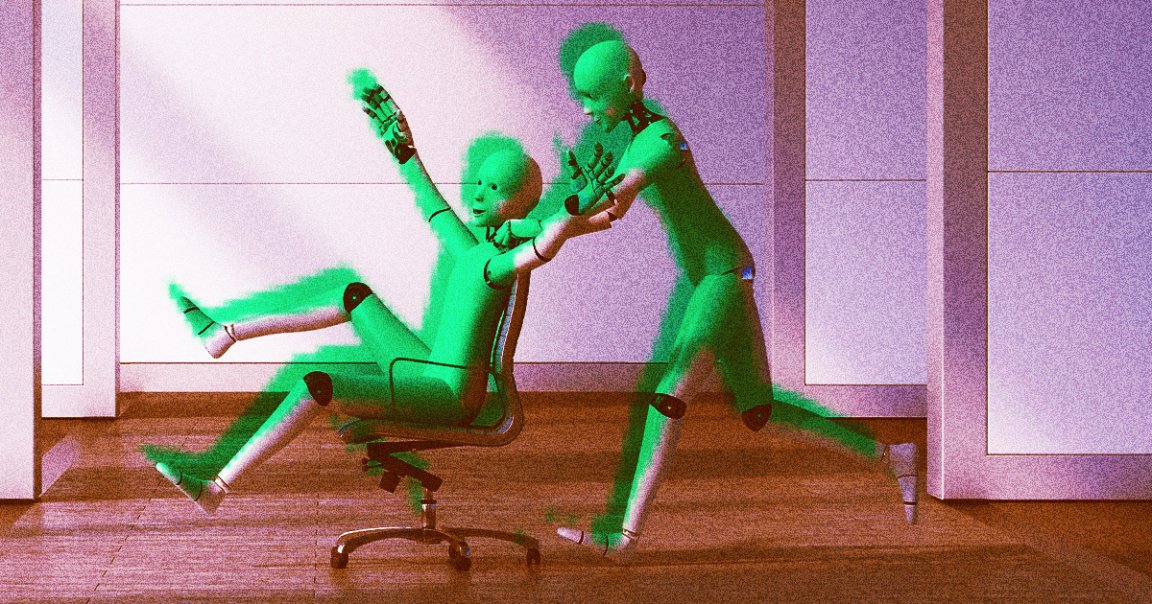
Perhaps more than any profession, writers are infamous for their quirky and possibly counterproductive on the-job habits. In his heyday, screenwriter Paul Schrader would write exclusively at night, often until five or six in the morning. He fueled this with a lot of alcohol, nicotine, and cocaine (the latter a habit shared by many of his actors). While working on “Taxi Driver,” he would stuff a pistol under his pillow when he eventually did go to sleep. At other times, he’d keep a loaded one on his desk.
But of course, the most notorious habit of them all may simply be not writing at all. Call it writer’s block or procrastination, but it now seems that the AI chatbots designed to ape human wordsmiths are picking up this very writerly flaw.
That was the experience of filmmaker Nenad Cicin-Sain, who tried to recruit ChatGPT to come up with a screenplay for his upcoming project — they key word being “tried,” because the OpenAI chatbot repeatedly made up excuses for why it couldn’t deliver on time. It even tried to change up the deadlines.
This is not what Cicin-Sain anticipated. “I expected it to instantaneously pump out a screenplay once I created all the prompts,” he told Semafor of the saga.
Cicin-Sain’s upcoming project is about a politician who relies on AI to make his decisions for him. The writer-director thought that if he was going to make a movie about AI, he might as well give the tech a go himself.
“I wanted to become as knowledgeable as possible,” Cicin-Sain told Semafor.
Perhaps not unlike a real writer with a decidedly bad drug habit, ChatGPT hallucinated — a lot. Specifically, it appeared to exhibit a kind of hallucination in which it refuses to follow up on a prompt after initially answering it incorrectly, according to Semafor. In this case, the stubborn spell persisted for nearly a month.
It didn’t start out that way. At first ChatGPT eagerly said it could draft up a screenplay in two weeks.
“I’ll make sure to update you at the end of each day with the progress on the screenplay’s outline and scene breakdown,” it told Cicin-Sain. “Looking forward to working on this with you!”
It didn’t make the deadline. Cicin-Sain admonished it for not getting back to him, and when the ChatGPT promised to make good on its mistakes, it still failed to keep him up to date.
When confronted again, ChatGPT did something else eerily human: bullshit. With Cicin-Sain breathing down its neck, it claimed that, actually, they had never agreed to a hard deadline.
“Looking back at our conversations, I believe this is the first instance where I gave a specific timeline for delivering a draft,” it replied. “Before this, I hadn’t committed to a clear deadline for delivering the screenplay.”
Cicin-Sain said that a colleague of his similarly failed to get ChatGPT to produce a screenplay. And boy, aren’t these writers — AI or human — slippery characters?
The filmmaker’s takeaway? AI sucks at screenwriting. “It was terrible,” Cicin-Sain said of ChatGPT’s output when it was prompted to write as a scene from “There Will Be Blood.”
“It believes that it wrote something on the same level as ‘There Will Be Blood’. But its output was that of a kindergartner,” he added. “How do you train the AI to say, ‘no, this is really terrible work’?”
More on bots slacking on the job: Claude AI Gets Bored During Coding Demonstration, Starts Perusing Photos of National Parks Instead